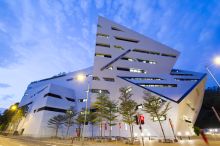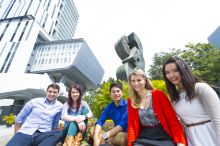The Master of Fine Arts in Creative Media (MFACM) programme is the first of its kind in Hong Kong. The MFACM is a degree with a long history in many prestigious European and North American universities and is commonly regarded as the highest level of academic qualification available in the creative arts. While the MFACM once was primarily associated with the traditional fine arts, such as music and painting, it has since the 1960s become the standard “terminal” degree in programmes specializing in more technology-intensive creative fields, including computer-based media production.
The Degree
MFACM emphasizes the integration of the Arts, Science, Culture and Technology. As an internationally-recognised terminal degree in the creative arts, MFACM provides intensive and advanced training in Digital Audiovisual Media Cultures, Animation, Computer Graphics, Film & Video Production, Interactive Media, New Media Art and Digital Fabrication. A cutting-edge art programme with a global vision, MFACM is a hub and a laboratory for creative exchanges and professional collaboration regionally and internationally.
Our students come from all over the world including Canada, Mainland China, France, Germany, India, Italy, New Zealand, the Philippines, Portugal and the United States. Non-local students are encouraged to apply since we are strongly committed to artistic and cultural diversities.
Programme Aims
- To develop the artistic and intellectual competence required for contemporary artists and future leaders of the creative industry
- To foster a critical and cross-disciplinary understanding of issues in contemporary art-making and creative industries
- To equip students with knowledge of artistic, scientific, and technological development, emphasising creative processes
- To prepare graduates with originality and professional ethics for leadership roles in the industry






